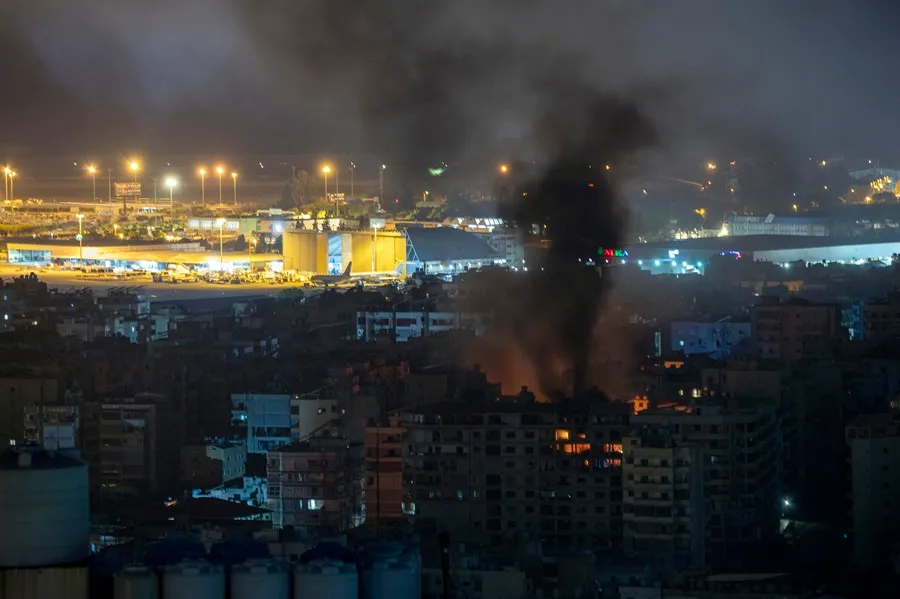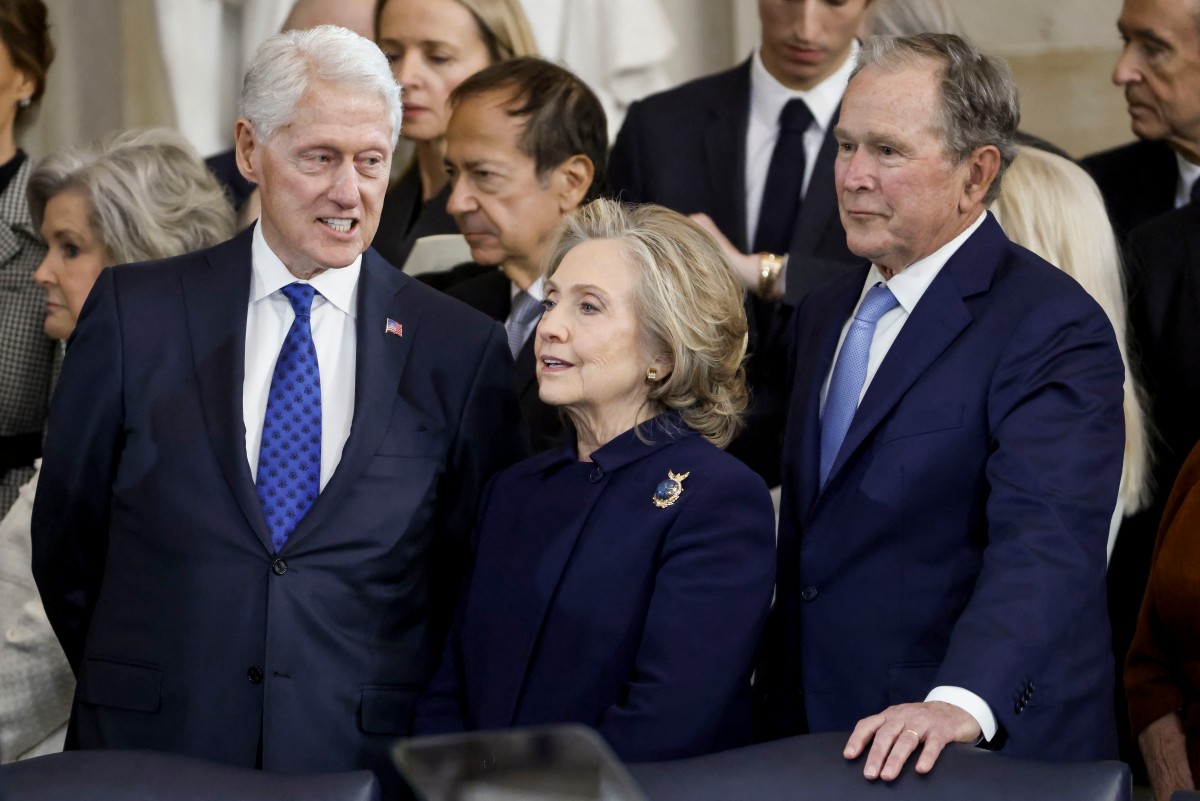International
The death toll from Israel’s attacks in Lebanon exceeds 2,000

More than 2,000 people have died and more than 9,500 have been injured by the attacks that Israel has launched against different parts of Lebanon in almost a year, although the vast majority of the victims have occurred in about two weeks after the start of the massive campaign of Israeli bombings.
According to a report by the Presidency of the Council of Ministers published on Friday, the number of victims increased after Israel launched a total of 153 attacks against different parts of Lebanon, mainly in the south, east and southern suburbs of Beirut known as the Dahye.
Israel intensifies its bombings against Beirut
In the early hours of Friday, Israel bombed several targets in the southern suburbs of Beirut, where the intensity of the attacks caused the collapse of several buildings.
One of those targets, according to the Hebrew press, has been the candidate for leader of the Shiite group Hezbulá, Hashem Safi al Din.
The newspaper ‘The Times of Israel’ assured that the Israeli aviation intended to end the life of the clergyman, probable successor to the top leader of Hezbullah, Hassan Nasrala, who died a week ago in another Israeli bombing in Beirut.
Meanwhile, the Israeli newspaper ‘Haaretz’, specified that among the targets of this morning’s attacks was again a bunker in Hizbulá used by senior officials.
According to the state media, the Israeli aviation used vacuum and anti-bunker bombs during the campaign, and also reached other points on the outskirts of Beirut outside the Dahye.
Several collapsed buildings
The strong wave of bombings, which resounded throughout the capital, caused the collapse of a police station, a supermarket and other buildings on the outskirts of the capital’s Dahye, an important stronghold of Hezbulah, reported the National News Agency of Lebanon (ANN).
Israel and Hezbullah have been facing each other since the beginning of the war in the Gaza Strip in October 2023, but violence increased to an unprecedented level about ten days ago, when Israeli forces began a massive bombing campaign that has devastated towns and entire towns.
In this context, for a week, the Dahye has been the target of intense waves of air strikes almost daily.
International
Federal Judge Blocks Trump Policy Allowing Deportations to Third Countries

A federal judge ruled on Wednesday that the policy of U.S. President Donald Trump’s administration allowing immigration authorities to deport foreign nationals to third countries without prior notice or the opportunity to object is unlawful. The decision marks another legal setback for the administration on immigration matters.
Judge Brian Murphy of the U.S. District Court for the District of Massachusetts struck down the regulation issued last year, which stated that Immigration and Customs Enforcement (ICE) was not required to notify migrants if they were to be sent to countries other than the one listed in their removal order, provided that receiving nations offered assurances they would not face persecution or torture.
Murphy ordered the measure vacated but granted a 15-day delay before the ruling takes effect, giving the Trump administration time to file an appeal.
In his decision, the judge concluded that the policy violates federal immigration law and migrants’ due process rights. He also questioned the lack of transparency surrounding the alleged assurances provided by receiving countries, stating that “no one really knows anything about these supposed ‘assurances.’” He added, “It is not right, and it is not lawful.”
The ruling follows several legal disputes involving deportations to third countries. Last year, the executive branch deported more than 200 Salvadorans to a maximum-security prison in El Salvador, invoking an old wartime law. The White House also held talks with Costa Rica, Panama, and Rwanda about receiving migrants who are not citizens of those countries.
In May, the same judge determined that the government violated a court order when it attempted to remove a group of immigrants with criminal records to South Sudan without prior notice or an opportunity to raise claims of fear of persecution.
Although President Donald Trump took the case to the U.S. Supreme Court, which temporarily allowed the deportations to resume while a final decision was pending, the White House is expected to again appeal to higher courts to overturn this latest judicial ruling.
International
Cocaine Production Surges 34% in 2023 as Market Expands into Africa and Asia

The global cocaine market is the fastest-growing among all illicit drugs worldwide, the International Narcotics Control Board (INCB) warned on Thursday in its annual report presented in Vienna.
The body attributes this expansion to the sustained rise in production in South America — particularly in Colombia — as well as increasing demand in emerging regions such as Africa and Asia.
According to the report, global cocaine production surpassed 3,700 metric tons in 2023, marking a 34% increase compared to 2022. This growth is largely driven by the expansion of illicit coca cultivation in Colombia and the greater production capacity of clandestine laboratories.
The INCB noted that the market has not only grown in volume but has also diversified and become more globalized. While Europe and North America remain the primary destinations, trafficking routes now reach “all regions of the world,” including Africa — traditionally considered a transit zone — and Asia, where the presence of cocaine was previously marginal.
In Western and Central Europe, for the fifth consecutive year, seizures in 2023 exceeded those in North America, consolidating the region as the leading destination market. Between January 2019 and June 2024, more than 1,826 metric tons of drugs bound for European ports were seized, of which 82% was cocaine, equivalent to 1,487 metric tons.
The report also highlights that seizures in Africa rose by 48% in 2023 compared to 2022, reflecting the expansion of the market on the continent. Globally, the number of cocaine users increased from 17 million in 2013 to 25 million in 2023.
International
Clinton Accuses Republican Committee of Using Epstein Case to Shield Trump

Former U.S. Secretary of State and former First Lady Hillary Clinton denied on Thursday before a congressional committee that she had ever met convicted sex offender Jeffrey Epstein in person or had any knowledge of the crimes he committed.
Clinton testified behind closed doors from New York before the House Oversight Committee. The wife of former President Bill Clinton — who is scheduled to testify on Friday — accused the Republican-controlled committee of summoning her in order to “distract attention” and “cover up” the activities of President Donald Trump, who had past ties to Epstein.
“I do not recall ever meeting Mr. Epstein. I never flew on his plane nor visited his island, his homes, or his offices. I have nothing further to add,” she stated.
The former Secretary of State emphasized that she “had no idea about the criminal activities” of the financier, who died in prison in 2019. “Like any decent person, I was horrified when I learned of his crimes,” she said.
Clinton described the Epstein case as “a tragedy” and “a scandal” that deserves “a thorough investigation,” but criticized the committee for failing to summon what she called the truly relevant individuals.
“Instead, you have asked me to testify, knowing that I have no knowledge that would serve your investigation, with the purpose of distracting from President Trump’s activities and shielding him despite the legitimate demand for answers,” she said.
The questioning, conducted behind closed doors in Chappaqua, New York — where the Clintons reside — took place one day before former President Bill Clinton was scheduled to appear at the same location.
Although the Clintons initially declined to testify before Congress, the threat of being held in contempt ultimately led the former presidential couple to agree to appear and explain their relationship with Epstein.
-

 International2 days ago
International2 days agoFamily of “El Mencho” Seeks Return of Body After Deadly Military Operation
-

 International2 days ago
International2 days agoLarry Summers Steps Down from Harvard Role Amid Epstein Controversy
-

 International2 days ago
International2 days agoIran’s President Optimistic Ahead of Geneva Nuclear Talks with U.S.
-

 International2 days ago
International2 days agoStephen Hawking Photo Appears in Newly Released Epstein Documents
-

 International2 days ago
International2 days agoBill Gates Admits “Serious Mistake” Over Epstein Ties
-

 International4 days ago
International4 days agoOver 40 Million Affected by Major Snowstorm in Northeastern U.S.
-

 International4 days ago
International4 days agoNine People Killed in Two Armed Attacks in Manabí, Ecuador
-

 International18 hours ago
International18 hours agoCocaine Production Surges 34% in 2023 as Market Expands into Africa and Asia
-

 International18 hours ago
International18 hours agoClinton Accuses Republican Committee of Using Epstein Case to Shield Trump
-

 International18 hours ago
International18 hours agoFederal Judge Blocks Trump Policy Allowing Deportations to Third Countries




























